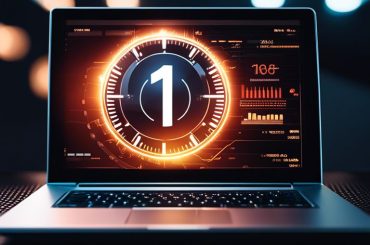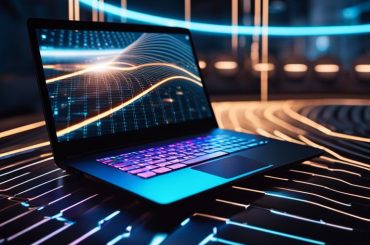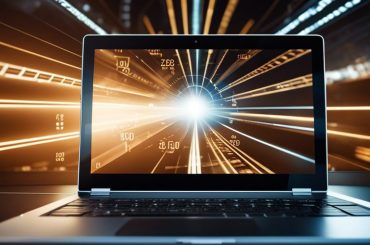Laptops are an essential tool in today’s modern world, and ensuring their optimal performance is crucial for productivity and efficiency. This comprehensive guide is designed to provide you with the tips and tricks you need to maximize your laptop’s performance. Whether you’re a student, professional, or casual user, these expert recommendations will help you get the most out of your device. From simple maintenance tasks to advanced optimizations, this guide covers everything you need to know to keep your laptop running smoothly and efficiently. Say goodbye to slow loading times and frustrating crashes, and say hello to a faster, more reliable laptop experience.
Types of Laptops and Their Performances
For a laptop to perform at its best, you need to understand the different types available and how their specific features can affect performance. Here is a breakdown of the most common types of laptops and their performances:
| Laptop Type | Performance Features |
|---|---|
| Traditional Laptops | Standard processor and RAM configurations |
| Gaming Laptops | High-end graphics cards, powerful processors |
| Ultrabooks and Convertibles | Lightweight, long battery life, touchscreen |
Traditional Laptops
Laptops in this category are designed for general use, such as web browsing, word processing, and simple multimedia tasks. They typically come with standard processor and RAM configurations that can handle day-to-day tasks efficiently.
Gaming Laptops
For those who are into intense gaming, a gaming laptop is the way to go. These laptops are equipped with high-end graphics cards and powerful processors to handle the demands of modern video games. They also feature advanced cooling systems to prevent overheating during long gaming sessions.
Any serious gamer knows the importance of having a gaming laptop that can deliver smooth and lag-free gameplay. With the right specs, gaming laptops can provide an immersive gaming experience with high frame rates and realistic graphics.
Ultrabooks and Convertibles
The ultrabook and convertible category is focused on portability and versatility. These laptops are lightweight, have long battery life, and often feature a touchscreen display. Despite their slim and compact design, they are capable of handling most everyday tasks with ease.
Convertibles, in particular, offer the flexibility of switching between laptop and tablet modes, making them ideal for users who need a device that can adapt to different usage scenarios. With features like 360-degree hinges and detachable keyboards, convertibles provide a seamless transition between productivity and entertainment.
Factors Affecting Laptop Performance
Assuming you want your laptop to perform at its peak, there are several factors that can affect its overall performance. These factors include hardware components, software and operating system, as well as external influences such as temperature and power supply. Understanding these factors and how they can impact your laptop’s performance is crucial in optimizing its functionality and ensuring a smooth user experience.
- Hardware components
- Software and operating system
- External influences
The key to maximizing your laptop’s potential lies in identifying and addressing these influencing factors effectively.
Hardware Components
The hardware components of your laptop play a significant role in determining its overall performance. These components include the central processing unit (CPU), random access memory (RAM), storage drive, graphics processing unit (GPU), and motherboard. The performance of each of these components contributes to the overall speed and functionality of your laptop. Upgrading these components can significantly impact your laptop’s performance, allowing for faster processing speeds and improved multitasking capabilities.
Software and Operating System
Performance of your laptop is also heavily reliant on the software and operating system it runs on. The quality, efficiency, and compatibility of the installed software programs can have a direct impact on the overall speed and responsiveness of the laptop. Additionally, the operating system serves as the foundation for all operations and functions of the laptop, so ensuring it is up-to-date and well-maintained is crucial in optimizing performance.
Components such as drivers, system updates, and background processes can also affect the overall functionality of your laptop. By paying attention to these components and regularly updating and maintaining them, you can ensure that your laptop is running at its peak performance.
Step-by-Step Tips to Enhance Your Laptop’s Performance
Keep your laptop running at its best with these simple tips and tricks. By following these steps, you can optimize your system settings, upgrade hardware components, and implement effective maintenance practices to ensure your laptop performs at its peak efficiency. The overall performance of your laptop can be greatly improved by taking a few proactive measures.
- Regularly update your operating system and software to ensure the latest performance enhancements and security updates are in place.
- Remove unnecessary programs and files to free up storage space and minimize system clutter.
- Keep your laptop clean and dust-free to prevent overheating and hardware failure.
The key to achieving optimal performance lies in the proactive maintenance and enhancements that you implement.
Optimizing System Settings
With the right system settings, you can significantly improve your laptop’s performance. Adjusting power settings, disabling unnecessary startup programs, and optimizing visual effects can all contribute to a smoother user experience and faster performance.
Upgrading Hardware Components
To truly enhance your laptop’s performance, consider upgrading hardware components such as RAM, storage, or even the processor. By investing in newer, more powerful hardware, you can experience faster speeds, quicker multitasking, and improved overall performance.
For instance, upgrading your laptop’s RAM from 4GB to 8GB can result in significant performance improvements, especially when running memory-intensive applications or multitasking.
Effective Maintenance Practices
To keep your laptop operating at its best, regular maintenance practices are essential. This includes cleaning the keyboard and screen, updating drivers, and running regular antivirus scans to ensure your system remains secure and efficient.
Components such as keyboards, screens, and drivers all play a role in maintaining your laptop’s overall performance and longevity. By implementing effective maintenance practices, you can prolong the lifespan of your laptop and keep it running smoothly for years to come.
Pros and Cons of Performance Tweaks
Unlike
| Pros | Cons |
| Enhanced performance | Potential for system instability |
| Customization options | Risk of voiding warranty |
| Increased productivity | Possible negative impact on battery life |
| Better gaming experience | Complexity of implementation |
| Cost-effective solution | Compatibility issues with certain software |
Speed vs. Stability
Pros
Optimizing your laptop for performance can result in faster load times, smoother multitasking, and overall improved efficiency. By making tweaks to settings and hardware, you can experience a significant boost in speed, allowing you to complete tasks more quickly and efficiently.
Long-Term vs. Short-Term Benefits
Cons
While performance tweaks may provide immediate benefits in terms of speed and efficiency, there is a potential downside in the long term. Overclocking and other tweaks can place additional strain on your laptop’s components, leading to a shorter lifespan and potentially costly repairs or replacements. Plus, the risk of voiding your warranty by making modifications to your laptop should not be overlooked. It’s important to consider the long-term implications of performance tweaks before implementing them.
The Ultimate Laptop Performance Guide – Tips And Tricks For Success
Hence, it is clear that achieving optimal laptop performance is not simply a matter of hardware and specs, but also requires attention to software, maintenance, and usage habits. By following the tips and tricks outlined in this guide, users can ensure that their laptops are operating at their best, providing a seamless and efficient computing experience. From managing startup programs to optimizing battery settings, these strategies can make a significant difference in performance and overall user satisfaction. With a focus on both hardware and software optimizations, users can maximize their laptop’s potential and prolong its lifespan. In conclusion, this guide offers valuable insights and practical advice for enhancing laptop performance, empowering users to make the most of their devices for both work and leisure.





